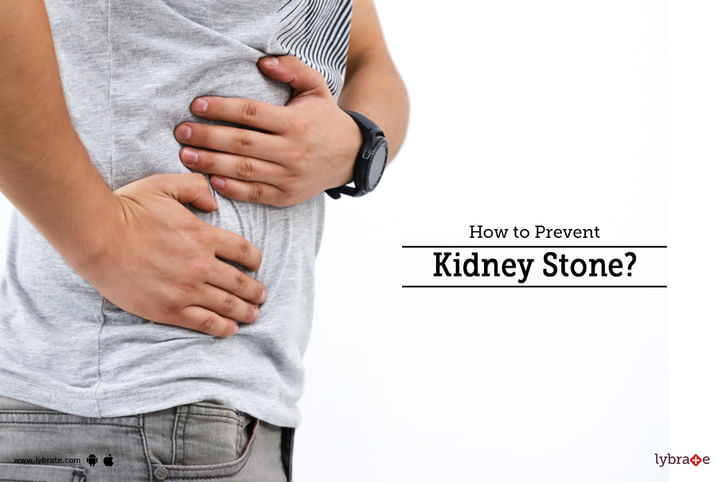How to Prevent Kidney Stone?
Kidney stones occur when there are more crystal-forming substances – oxalate, uric acid, calcium – contained in your urine than the fluid can dilute. The stones are small, hard deposits of salt and minerals, and can develop anywhere along the urinary tract – from the bladder to the kidneys.
Look Out for These Signs –
Kidney stones may not exhibit symptoms until the stone starts moving around in your kidney or passes into the ureter. Nevertheless, the most common symptoms of kidney stones are the following–
-
Severe pain in the abdomen, along the back and side, and below the ribs
-
Pain during urination
-
Discolouration of urine – black, red or pink
-
Foul odour during urination
-
A constant need to urinate
-
Urge to urinate often but in small amounts
-
Fever and chills
-
Blood in the urine
How to Prevent the Occurrence of Kidney Stones
‘Prevention is better than cure’ – and so, the best way to counter such a painful condition is to prevent the formation of kidney stones. A combination of lifestyle and dietary changes may reduce your chances of developing stones in the kidney.
Here are a few tips to follow –
-
Hydrate Yourself – Drink plenty of water and citrus fluids to keep yourself hydrated and prevent kidney stones. If you do not consume enough liquids, your urine output will be low, concentrated, and less likely to dissolve salts that cause kidney stones. Your daily water intake should ideally be 6-8 glasses.
-
Consume Calcium-rich Foods – Eat foods that are rich in calcium, such as low-fat milk, yoghurt or cheese, and other dairy-based products. These reduce the formation of kidney stones.
-
Cut Back on Sodium Intake – A diet rich in sodium increases the risk of calcium kidney stones. The presence of excess salt in urine stops calcium from being reabsorbed in the blood. Reducing sodium intake helps keep the level of urine calcium in check.
-
Limit Your Intake of Oxalate-rich Foods – A natural compound, Oxalate (found in spinach, sweet potatoes, coffee, peanuts etc) binds with urine calcium to create kidney stones. Therefore, restrict the consumption of such oxalate-rich foods.
-
Eat Less Animal Protein – Avoid eating animal proteins like beef, poultry, pork and fish, as such foods are acidic in nature and are likely to increase uric acid – one of the major reasons for kidney stone formation.
Following these measures can help prevent the formation of kidney stones. However, if dietary changes are not enough to manage the condition, or if you develop recurrent stones, medical intervention may be the only option of treatment.


+1.svg)
